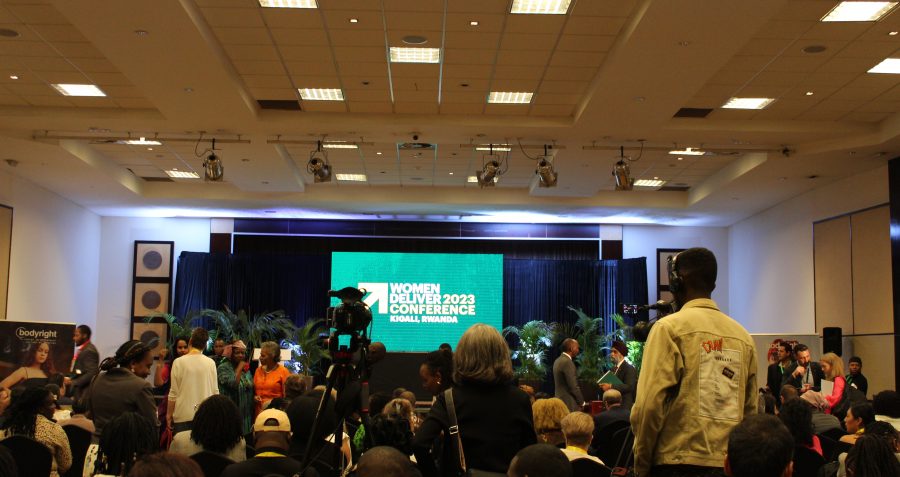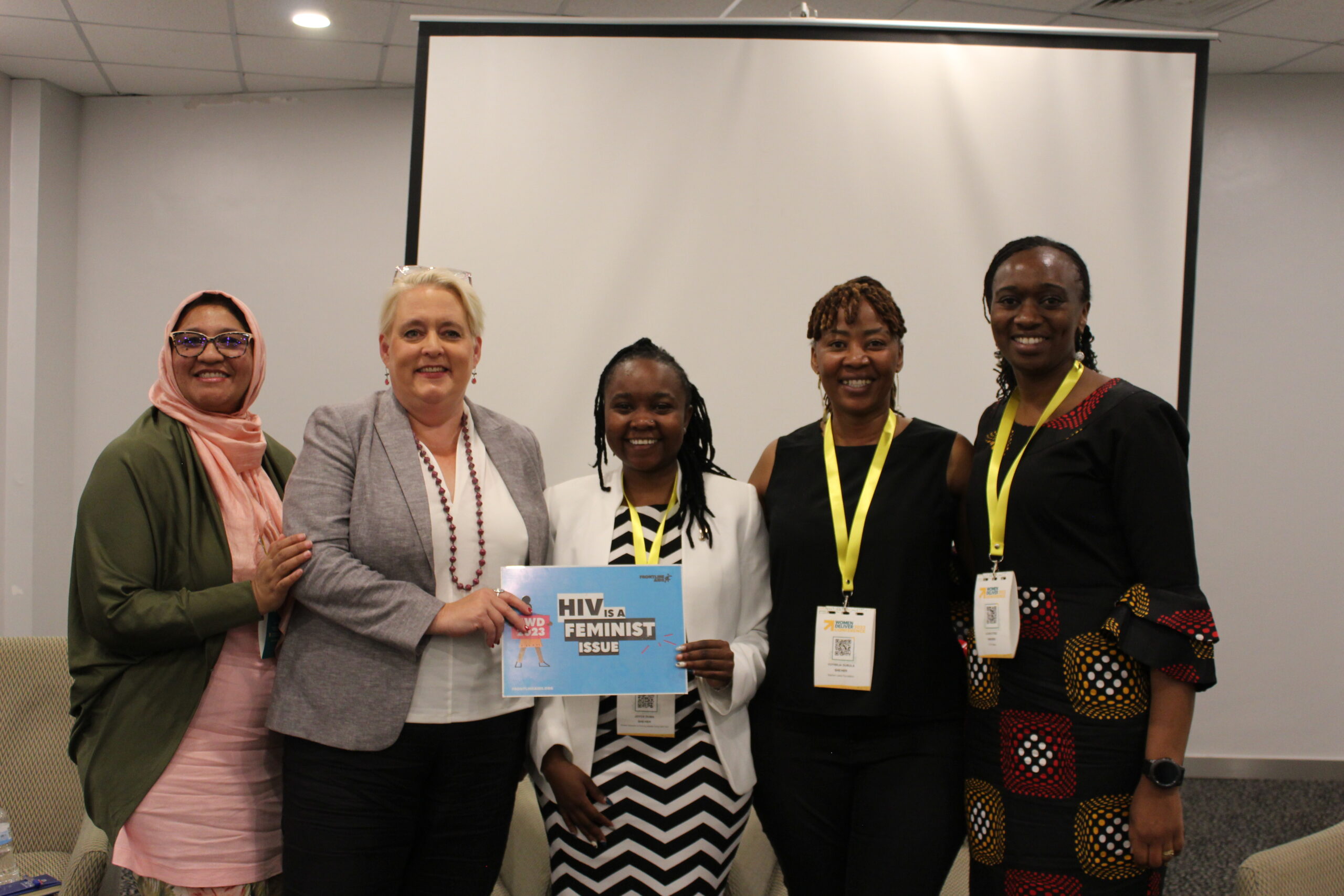Is HIV a feminist issue? Bridging the gap at Women Deliver 2023

HIV remained on the fringes of the feminist agenda at the Women Deliver 2023 conference in Rwanda.
Women Deliver 2023 marked a significant milestone. It took place on the African continent for the first time, hosted in Kigali, Rwanda, and promised to address the most pressing issues faced by women and girls in Africa. Despite the fact that women and girls in sub-Saharan Africa are disproportionately affected by HIV, the issue of HIV remained on the fringes of the feminist agenda.
Women and girls in sub-Saharan Africa accounted for 63% of all new HIV infections in 2022, clearly indicating the importance of tackling HIV, which we know is intricately intertwined with gender inequality and gender-based violence.
The conference brought together activists and youth delegates, world leaders and policymakers, UN agencies and non-governmental organisations, all committed to advancing gender equality and improving the health and rights of women and girls. The lively atmosphere at the Kigali Convention Centre, bustling with 6,000 attendees from around the world and virtually engaging 200,000 participants, set the stage for a fruitful and engaging conference. Offering an array of panel discussions, workshops, and side events on topics such as bodily autonomy, sexual and reproductive health and rights, and funding mechanisms, Women Deliver 2023 provided ample opportunities to network and reconnect with partners and other organisations, and to plan how to galvanise for future action.
A missed opportunity
With Women Deliver bringing people together after the COVID-19 pandemic, it would have been a great opportunity to turn the spotlight towards addressing the most significant challenges faced by women and girls in this region – HIV. However, there were hardly any events or stalls dedicated to focusing on HIV, raising concerns about its integration into the wider feminist discourse.
On plenaries and main panels, there was also a real lack of representation from groups most impacted by HIV such as sex workers, trans women, and young women and adolescent girls. These communities face multiple layers of discrimination and bear a disproportionate burden of the HIV epidemic. For example, transgender women are at 34 times greater risk of acquiring HIV than other adults, and female sex workers are at 26 times greater risk of acquiring HIV than other adult women. The absence of their voices in most Women Deliver events highlighted the inadequacy of efforts to address HIV comprehensively.
Frontline AIDS played a crucial role in ensuring that HIV remained visible and integrated into the feminist agenda at the conference. Our sessions provided a space for important – and oftentimes confronting – conversations and perspectives.
Doing Development Differently

Our first event, ‘Doing Development Differently: Addressing inequalities and disrupting power to end AIDS’ delved into the importance of tackling power imbalances, truly recognising all intersecting identities affected by HIV, and the importance of investing in young people’s expertise in the response. UNAIDS Regional Director for Eastern and Southern Africa, Anne Githuku-Shongwe, talked about the need for “true co-creation with the communities we’re working with and for.” The powerful discussion from the panel was followed by an open and honest conversation with participants in the room.
HIV is a feminist issue

Following on from our ‘HIV is a feminist issue’ podcast, our second event brought to light the critical link between HIV and feminism. The panel shared experiences from their careers of working across the HIV response with youth delegates and participants. Joyce Ouma from Y+ Global, noted that “the problems young women and girls living with HIV are facing are not new. We cannot be on the sidelines anymore.” The panel continued to dissect the enduring and pervasive role of colonisation, racism, and patriarchy, and urged for the integration of feminist principles into every aspect of the AIDS response.
Yumnah Hattas, Senior Advisor: SRHR and Gender at Frontline AIDS, who moderated the session, says:
While gender equality is the first step towards removing barriers, it is gender equity we strive for because then we can say women in all their diversity can live their lives optimally without having to navigate the burden of competing with white privilege that fast tracks white women into positions of leadership, seen as the legitimate face of the development sector. We need to challenge donors to question why more trust is rather placed in the hands of white faces than in the hands of black and women of colour, despite the level of effort exerted by black and women of colour. The time for true accountability is now and we need to call out the legacy of colonisation – patriarchy and racism.
Looking to the future
Women Deliver 2023 provided a powerful platform for leaders and policymakers dedicated to gender equality and women’s empowerment. However, the marginalisation of HIV on the feminist agenda was an unfortunate reality. We know that global solidarity to end the pandemic has also stalled, with overseas assistance for HIV from bilateral donors, other than the USA, plummeting by 57% over the last decade..
Moving forward, future conferences must prioritise HIV as a feminist issue where we can share strategies for HIV prevention and amplify the voices of those most impacted by HIV. Bridging this gap is essential to achieving genuine gender equality and bringing an end to the HIV epidemic. A comprehensive feminist agenda must encompass all aspects of health and human rights, leaving no one behind in the pursuit of a gender-equal future free from AIDS for everyone, everywhere.
Tags
Adolescent girls and young womenDoing development differentlyFeminismHIVWomen Deliver

